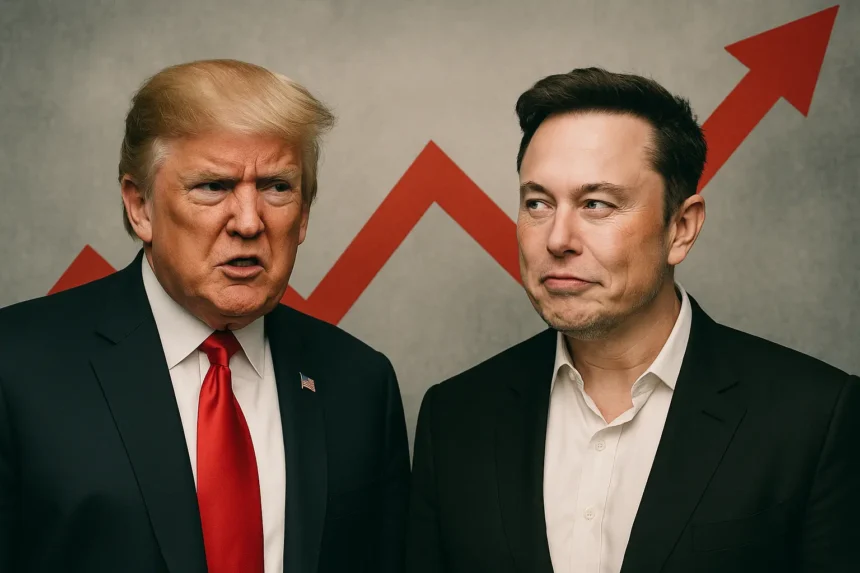The relationship between Donald Trump and Elon Musk has taken a dramatic turn. Once allies in business and politics, the pair now publicly clash over government policies, spending bills, and electric vehicle mandates. This feud reaches new heights amid tariffs, subsidies, and contract threats that impact major industries and government projects.
TF dives into the details of their falling out, explores the implications for U.S. tech and manufacturing, and reveals what this rivalry means for business and politics
What’s Happening & Why This Matters
Trump and Musk’s Relationship: From Allies to Opponents
Initially, Elon Musk did not support Donald Trump, voting Democrat in 2016 and 2020 and resigning from White House advisory councils over the Paris Climate Accord. However, Musk endorsed Trump’s 2024 re-election bid and contributed around $277 million to his campaign. Trump hailed Musk as a “star” during his victory speech, marking a high point in their collaboration.
By January 2025, Musk joined other tech CEOs at Trump’s inauguration and briefly advised a government cost-cutting group known as DOGE, created by Trump’s executive order. However, DOGE faced pushback, especially after Musk’s involvement in politics raised concerns internationally.

The Rift Deepens Over the “One Big Beautiful Bill”
The relationship soured sharply in May 2025 after the U.S. House passed the One Big Beautiful Bill Act — a sprawling legislation covering spending, tax cuts, and social benefits. Musk condemned the bill as a “pork-filled Congressional spending bill,” warning it would worsen the federal deficit and burden citizens with unsustainable debt.
Marjorie Taylor Greene, chairwoman of DOGE, expressed regret for supporting the bill, noting it restricts states from regulating AI for a decade. This restriction alarms experts who warn that AI’s future capabilities remain unpredictable and potentially dangerous.
Trump’s Public Attack and Musk’s Retaliation

Donald Trump accused Musk of opposing the bill only when it threatened Tesla’s electric vehicle (EV) mandate. Trump claimed to have removed Musk’s EV mandate and criticized the subsidies supporting Tesla, calling for their termination to save billions.
In a striking response, Musk threatened to decommission SpaceX’s Dragon spacecraft, directly linking government contracts to this feud. This escalates tensions between two powerful figures shaping technology and policy.
Market and Public Reactions
Tesla’s stock experienced a sharp decline after the fallout, showing how quickly public perception impacts company valuations. PR expert Josh Wheeler commented that this feud damages Trump’s pro-business image and Musk’s reputation for innovation. Both men appear to be losing control of the narrative as the dispute plays out publicly on social media platforms.

TF Summary: What’s Next
The clash between Donald Trump and Elon Musk signals ongoing uncertainty for U.S. tech and policy landscapes. Musk’s willingness to challenge government contracts could affect future collaborations, especially in aerospace and electric vehicles. Meanwhile, Trump’s public denouncements may influence political and economic dynamics ahead of future elections.
Businesses and investors should watch this feud closely, as its outcomes may impact regulations, subsidies, and government spending in critical technology sectors. The unfolding saga demonstrates the complex interplay between politics and innovation in America’s tech-driven economy.
— Text-to-Speech (TTS) provided by gspeech


